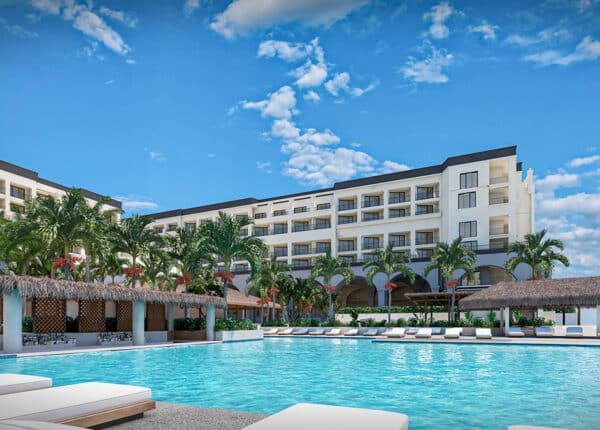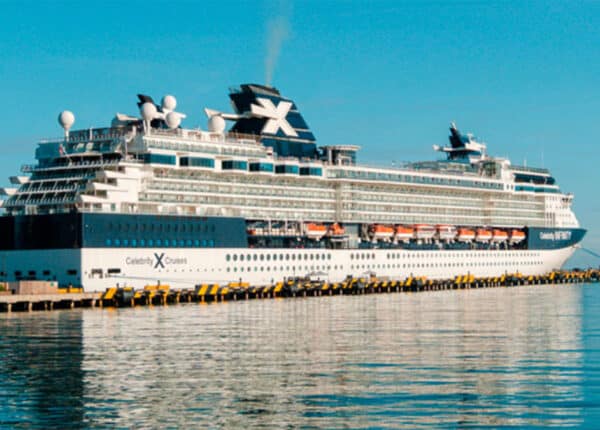Director Stevan Riley on his Film “Fire in Babylon” and the Power of Cricket
For almost fifteen years beginning in the 1970s, the West Indian cricket team was the best in the world, and perhaps the best side in any sport. In an era of prejudice and racial upheaval, the Windies turned heads and captivated the globe, especially the United Kingdom. Director Stevan Riley, who told the story of the legendary Oxford-Cambridge boxing rivalry in his previous documentary, Blue Blood, has brought the story of the Calypso Cricketers to the silver screen in his new film, Fire in Babylon. The documentary, which has been released to acclaim in the United Kingdom, has already premiered in Kingston, Jamaica, and Riley said the film has acquired Caribbean-wide distribution. Caribbean Journal talked to Riley about the Windies, how the film got its name and how cricket’s impact has always seemed to transcend the field.
How did you get involved with the film?
One of the producers of the film mentioned that there was a cricket film in development, and I asked them what team it was on. I was told it was the West Indies team. That immediately got me hooked, because, as a kid, I remember these guys transforming the game. When they came to England in 1984 and I was nine years of age, I was transfixed.
What kind of influence did the Windies have on cricket?
Everyone has his idea of cricket being a very sedate, genteel game. But the West Indies transformed that. Playing them was a real danger sport — because that ball can really hurt you — broken ribs, broken jawbones, depressed cheekbones. I remember watching it, and I was very aware that, even at that age, this was something quite lethal. They won over a lot of people with their more exciting, aggressive style of play, but they had a lot of skill as well — that’s how they managed to maintain the top spot for 15 years. I realized that the team hadn’t really been billed in that way — no one had really praised the West Indies for being the most successful sports team in history — they were at the top of their games for 15 years — I would argue, for 20 years. That is unprecedented, unbelievable, especially in a sport like cricket. For that fact alone, I knew that there was an epic story here.
What was the political impact of their success in such a tumultuous era?
Cricket, even within the U.K., is a game that is born out of the elite. It was played in public schools. When you translate that into a colonial context, cricket was the game of the ruling class. But conversely, it also represented an opportunity for subjugated peoples of the colonial era. It was an outlet for the West Indians to prove their worth, prove their equality. Going back to the time of slavery, it was considered very gentlemanly to be a batsman, but ungentlemanly to run in and be a bowler. The slaves were typically recruited to bowl. So bowling became an opportunity to take on your ‘master’, and it was one of the very few arenas where there was a chance not only to express oneslef, but prove oneself as equal. So cricket was very peculiar within the Commonwealth as being a focus for revolutionary movements — when there was any kind of progressive change within the islands, it happened on the cricket field first. For example, the West Indies had a black captain of cricket before they had a black prime minister. It was interesting — cricket always seemed to predate changes in the political or social sphere. So cricket was a focus for civil change, for colonial ambition, for independence.
What did their run mean for the West Indian community in the United Kingdom?
I think it was huge. I’ve had screenings at the London Film Festival, and it was really touching — people come up to you at the end of the screening, and thank you for telling the story. It was quite moving to recognize that this was a really integral part of, not just people’s upbringing, but their identity growing up in the U.K. It was quite a difficult time — in the period after World War II, there was a labor shortage in the U.K., and the West Indians were invited over to plug the labor gap. But once they arrived in England, they expected to find this kind of Shangri-La, but found that not everyone was happy about having them around. There was a lot of friction, culminating in race riots in the 70s and 80s in the U.K. And cricket was an arena, where the immigrant population could prove themselves as equals and dispel prejudice. It was a forum by which the West Indian population could show that they weren’t an underclass, and that they could outwit and outbox the English players on the cricket field.
Where did the name “Fire in Babylon” come from?
I was fascinated by how many Rastafarians were confidantes of the West Indies squad. What’s interesting is that Bob Marley’s interview is in the film, and he was a huge fan of cricket. He loved cricket as a boy and followed the West Indies team growing up. One of the big heroes of the film, Viv Richards, used to hang out a lot with Bob Marley. So at the time you’ve got Rastafarians hanging out with the captain of the West Indies team, on the tour bus, in the pavilions, mingling with the squad, which is quite a radical thought when you think of cricket as being the game of the conservative establishment. So Babylon, in Rastafarian speak, refers to systems of oppression or prejudice, wherever it resides. And the fire is the West Indies team, their style of play — it was a righteous fire that was going to stamp out prejudice by example.







